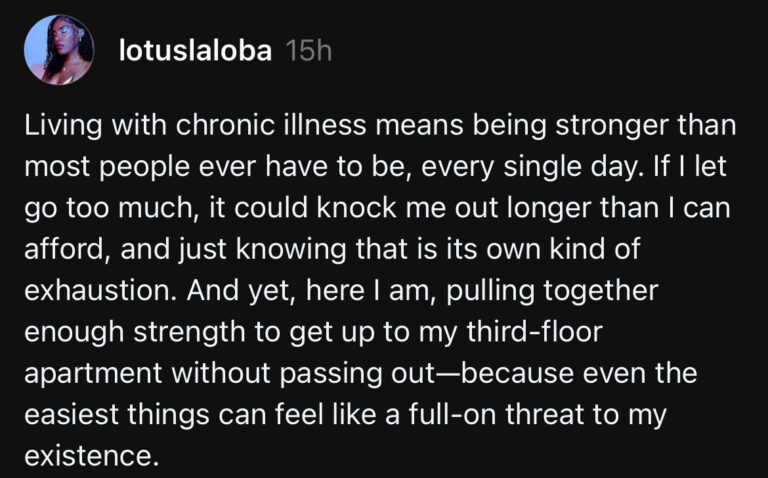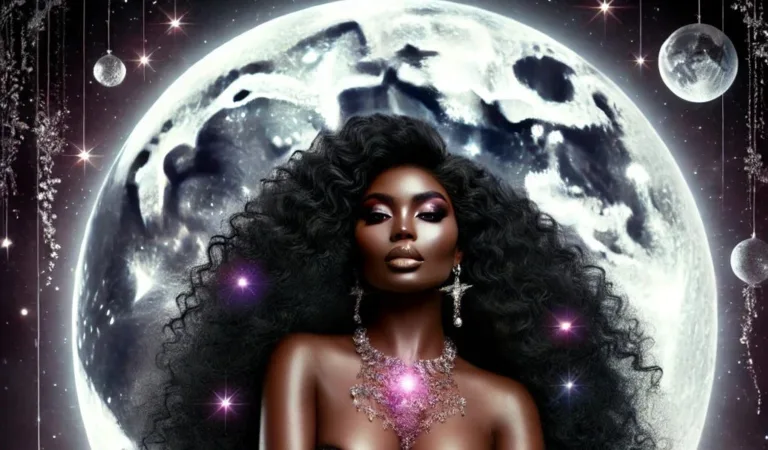The Recipe to Call Your Soul Back Home
I’ve been reflecting on what it really takes to call your soul back—to gather the parts of yourself left scattered along the way and invite them home. Not as a forced return, but as a deliberate summoning. This is not a journey of perfection or struggle; it’s one of presence and reclamation.
Dr. Clarissa Pinkola Estés, in Women Who Run With the Wolves, speaks of La Loba (my namesake), the Bone Woman, who roams the desert collecting the scattered bones of wolves aka wild women. She gathers the forgotten, the broken, the lost, and then sings life back into them, resurrecting their spirit. This story is not just a metaphor—it’s a call. Like La Loba, we too must collect the pieces of ourselves, embrace them with care, and sing our souls back into being. Song is ancient and Ancestral, it’s how every single one of us has learned to speak. This song requires a rhythm, tuning into the Dark Femme energy within us all. As we do we witness a recipe of sacred ingredients that have always been ours: honesty, stamina, tenderness, sweetness, rage, and humor.
These are guides that can support us in weaving ourselves back together. Each one holds its own duality—soft and sharp, shadow and light. Together, they soften the hard edges, help is embrace what feels too much, and find beauty in the wilderness of our own becoming.

The journey begins with honesty. Not the surface-level honesty we learned as children—the kind designed to keep us out of trouble, please authority, or meet outdated & unnecessary expectations. This honesty is raw and unapologetic. It’s the kind that stops us in our tracks, strips away the façade, and influences us to ask: Why do I feel disconnected? Where have I abandoned myself? What parts of me have I silenced to survive in a world that demands I shrink?
True honesty doesn’t care about being “right” or “acceptable.” It’s not about reciting the truths others expect from us. This honesty reaches deeper—it demands we look inward, beyond the carefully curated versions of ourselves we present to the world. It whispers to us in moments of stillness, asking questions we’ve long ignored: Why does this life I’ve built feel so far from who I truly am? What am I pretending not to know?
We aren’t just about confronting what’s broken or misaligned— we are rediscovering what’s been buried. Beneath the layers of denial and fear, there are pieces of ourselves that still pulse with life. These are the quirks, dreams, and passions we had to leave behind to survive – but need to thrive. Honesty shines a light on them and says, Look—they’re still here. They’ve been waiting for you.
This process is uncomfortable, even unsettling, because it forces us to dismantle the narratives we’ve used to protect ourselves. Honesty gets us to witness the empty spaces, the moments we chose social safety over divine truth, the times we said yes when we meant hell no. But it’s also liberating. Honesty gives us permission to stop pretending and start living. It lets us see ourselves fully—not just the parts we’ve polished but the raw, unfiltered truth of who we are.
Honesty doesn’t mean perfection or complete clarity. It gives us the bravery to willingly admit what isn’t working and reestablish curiosity about what’s waiting in the shadows. It’s the first howl in the song of our return, the moment we say, I’m ready to see myself, no matter what it reveals. And in that seeing, we begin to reclaim the pieces of our soul that were never truly lost—just waiting to be noticed.
Once the first note is sung, stamina is what carries us forward. But stamina isn’t about grinding or forcing—it’s about devotion. It’s the steady rhythm that keeps us going as we gather the scattered bones of who we’ve been. La Loba doesn’t rush her work & northern should we. She moves deliberately, knowing that every piece matters.
So many of us have been taught to use stamina as a tool to endure, to keep up with the non existent Joneses, to survive in systems that weren’t built for us- in fact they were built in spite of us. We’ve used it to push through exhaustion, to meet expectations that aren’t ours, and to prove our worth in spaces that were never designed to hold us. This is the kind of misuse of stamina that drains us, leaving us disconnected from our bodies and depleted of the energy we need to thrive.
But stamina, when aligned with truth, becomes something entirely different. It’s no longer about blending in or grinding ourselves down—it’s about devotion to what is sacred. Stamina asks us to return to what feels real and meaningful, to keep moving toward what nourishes us, even when it feels hard. It’s not about forcing our way through pain but finding the quiet resilience to stay present with ourselves.
Aligned stamina is slow, intentional, sacred. It’s the deliberate act of gathering the scattered pieces of your soul—not rushing, not skipping over any part of yourself, but honoring the time it takes to reclaim what was lost. Stamina whispers, You don’t have to rush. The journey is the journey, and it’s yours to experience. This rhythm needs you to persevere; it only asks for your presence.
And within this presence is where the duality of stamina shows itself. When misused, it leaves us burnt out and bitter, worn down by trying to carry too much. But when used with care, stamina becomes the steady energy that holds us up. It’s the quiet strength that says, I will keep going, not because I have to, but because I deserve to reach the other side – I’m designed to.
Stamina isn’t infinite—it’s cyclical. It needs rest to regenerate, pauses to recover. La Loba pauses when she needs to, modeling for us to do the same. True stamina doesn’t ask us to keep going endlessly; it asks us to stop when it’s time, to lay down our tools, and to rest so we can rise again. This kind of stamina is not a grind—it’s a sense of grace, one that honors the rhythm of our own becoming.
It takes stamina to walk the path back to yourself, to gather what has been scattered, and to trust that every step matters. But stamina also carries a reward. Each piece you gather, each step you take, reminds you of your own devotion—to your truth, your power, and the life you are reclaiming. It’s not about exhaustion; it’s about choosing yourself, again and again, until you are fully aware of how whole & holy you have always been.
Share
Eventually, the gathering leads us to tenderness. Tenderness is the pause in the song, the place where we deeply let ourselves feel. It’s not weakness; it’s strength. Tenderness is the exhale after effort, the moment when we open our arms to hold what’s raw and real.
But tenderness isn’t just a balm—it’s an opportunity. It invites us to slow down, to take inventory of the wounds we’ve gained on our journey back home. These wounds aren’t just reminders of pain; they’re evidence that we’ve lived, that we’ve tried, that we’ve continued on even when it felt impossible. Tenderness is the quiet recognition that we’ve survived, not because it was easy, but because we were willing to keep moving.
When we lean into tenderness, it reminds us that healing isn’t something we rush through. It asks us to sit with our scars and tend to them with care, to let the ache of what we’ve carried soften in the light of compassion. Tenderness holds wisdom—it shows us that the only way to move forward is by tending to ourselves now, not later. By giving ourselves the love and attention we need, we ensure we don’t have to repeat what we’ve experienced. It’s a safeguard, a sacred practice of self-preservation.

This tenderness doesn’t erase what we’ve been through, but it allows us to savor it as a sign of our resilience. It says, You did it. You made it this far. Now let yourself rest. It whispers that we are safe now—safe to heal, safe to release, safe to let go. Tenderness tells us that the fierce survival mode we needed to get here can now soften into something gentler.
And in that softness, we can see the wisdom of tenderness itself: the way it holds us up, the way it reminds us that we don’t have to be hardened by life to exist. Tenderness is what allows us to mend the fractured parts of ourselves, not with force but with patience and care. To let ourselves feel deeply, to honor the beauty in our trying, and to finally come home to ourselves.
Sweetness is the melody’s gentlest note. It’s the warmth of the sun on your face, the laughter that bubbles up unexpectedly in a random moment, the taste of something that sends you heaven. Sweetness reminds us that life doesn’t have to be heavy all the time—it can be light, even playful. But sweetness isn’t naive or unaware. In fact, it’s the opposite. Sweetness is a quiet act of rebellion, a refusal to let the world make you believe you were made for misery.
As Black women, sweetness is a kind of magic we’ve always known how to wield. It’s not about ignoring the weight of systemic oppression or the realities of struggle—it’s about reclaiming joy in spite of them. Sweetness is a spell that whispers, I am worthy of beauty, of delight, of savoring this life that is mine. Choosing sweetness is choosing yourself, your divinity, over a world that often tries to jade or disempower you. It’s a friend who holds up a clear mirror, reminding you of who you truly are: whole, radiant, and deserving of love—not because you’ve done anything to “earn” it but because you simply exist.
Sweetness doesn’t require grand gestures; it thrives in small, tender moments. A cup of tea in the serenity of a morning. A song that makes you sway your hips, keeping you in a rhythm that’s more ancestral than you know. The sound of your own laughter ringing out like a bell. These moments are not frivolous—they are sustenance. Sweetness nourishes your spirit and reminds you of the inherent magic of being alive. It says, You don’t have to carry the world all the time. Put it down, soften your shoulders, and let yourself dance with joy.
To choose sweetness is to say no to bitterness, no to resentment, no to the voices that tell you joy isn’t for you. It’s a sacred act of defiance, that will softens the edges and make room for you to roam. And in that roaming, you remind the world—and yourself—that your light cannot be captured.
Rage often feels like the hardest ingredient to hold, but it’s as vital as breath itself. It’s the Ancient drum used to engage with the grittier parts of life. For generations, we’ve been taught to fear our rage, to suppress it, to bury it so deep it never sees the light of day. As Black women, this suppression hasn’t been optional—it’s been a survival strategy. Rage, we were told, makes us “angry Black women.” It makes us unlovable, undesirable, unworthy of respect. We’ve been trained to silence our anger in favor of appearing calm, agreeable, and accommodating—anything but fierce.
But this silencing comes at a cost. Suppressing rage doesn’t make it disappear; it festers. It turns inward, showing up as resentment, exhaustion, even illness. We’ve learned to carry the weight of systemic oppression, microaggressions, and disrespect with a forced smile, all while shrinking ourselves to avoid confrontation or judgment. And in doing so, we’ve denied ourselves one of the most sacred tools we have: the fire that protects us.

Rage is not a weakness; it is a boundary. It’s the instinct that says, I deserve better, and the force that clears away what threatens to dim our light. Rage isn’t chaos—it’s clarity. It burns through the lies we’ve been told about who we are and reminds us of our worth. This fire isn’t here to destroy us; it’s here to enliven us. To keep our passions pulsing, our dreams safe, and our spirits intact.
Reclaiming our rage is not about lashing out or living in anger—it’s allowing ourselves to feel fiercely and fully. Rage says, Aht Aht not too much on my girl, back TF up. It’s the force that ensures we don’t just survive—we thrive. When we honor our rage, we reclaim the right to take up space, to demand what is ours, and to protect the sacred flame of our power.
This isn’t about staying in a state of perpetual anger but about giving ourselves permission to feel it, use it, and let it guide us when we need it most. Rage is sacred. It’s the wild woman’s howl, the song of survival turned into a roar of thriving. It reminds us that our fierceness isn’t something to be hidden—it’s something to be honored.
Finally, humor. Humor is the release, the note in the melody that lifts and frees. It’s more than just a laugh—it’s survival. For generations, Black people have known this instinctively. Humor has been a sacred tool, a way to hold the unbearable, to soften the blow of terrors that would otherwise crush us. It’s the joke whispered in the back of the room, the knowing glance exchanged in the face of absurdity, the laugh that reminds us we are still alive, still here, still full of soul.
Enslaved folks found ways to laugh even while surviving the absolute ugliness of whiteness. Their humor wasn’t about ignoring pain—it was a way of reclaiming power, even in the smallest, fleeting moments. Through centuries of systemic oppression, the fight for civil rights, and the daily weight of living in a system built for us to fail, humor has been a safe haven and a weapon. It has carried us, reminding us that while our circumstances may be brutal, our spirits are not & can never be broken.
Humor doesn’t deny the darkness; it shines a light inside of it. It allows us to carry the collective & individual heaviness differently, to breathe, to find joy even when the world feels joyless. It’s the sound of resilience, the act of redirecting our energy & the narrative, turning pain into something we can laugh at, hold, and ultimately transcend.
It’s a reminder that we’re not just here to survive. We’re here to live, to thrive, to laugh so loudly that the sound becomes its own form of resistance. Humor is ancestral medicine, a thread that connects us to those who came before, reminding us that joy is an act of defiance.

Together, these ingredients—honesty, stamina, tenderness, sweetness, rage, and humor—form the melody that sings your soul back to life. Like La Loba gathering bones in the desert, this experience is ancient and sacred. It’s a rhythm that hums deep within us, waiting to be remembered.
The journey won’t always feel soft, but it will soften you. It won’t ask for perfection, only presence. Each step, each note, brings you closer to the self you’ve always been—a wild, untamed force of beauty and power.
If this resonates, let it begin today. Let honesty be your first howl. Let stamina guide your gathering. Let tenderness soften you. Let sweetness nourish you. Let rage clear your path. And let humor carry you when everything feels too heavy. This is the melody of your return—the song that sings your soul home, exactly where she belongs.







